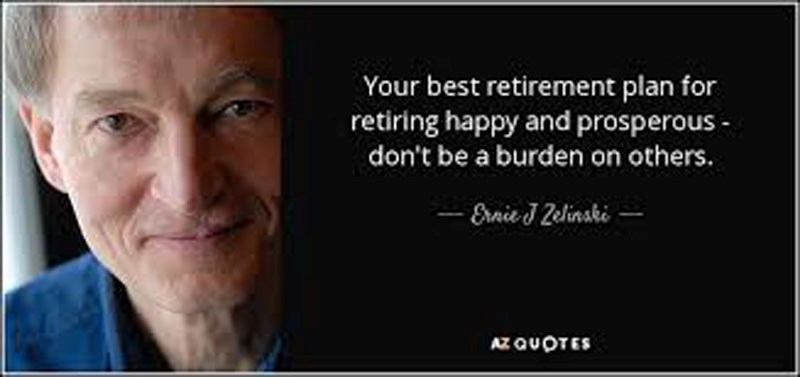What’s your definition of happiness? Is it early retirement? Good health? These are valid and often chosen list-makers for many people, who want to have money and time for travel or to spend at home with kids/grandkids. But not so fast. No one would argue with wanting to stay healthy well into one’s golden years, so as to enjoy family, friends and free time. But early retirement is a notion coming under scrutiny more often, with many experts now saying the opposite: don’t retire, and you’ll be happier.
Truth is, the retirement dream isn’t even a reality for many. A recent TD survey says the ‘boomerang effect,’ where adult children are returning to live at home with their parents, is preventing nearly two-thirds of boomers from even saving for retirement. A 2011 census survey showed almost 60 per cent of young adults ages 20 to 24 were living with their parents, while one quarter of 25- to 29-year-olds were there too. It’s a trend that is only increasing, according to Statistics Canada, and kids at home for longer means less savings for retirement for Mom and Dad.
But the notion of retirement at all – early or otherwise – is on the table for discussion at an upcoming event at the St. Albert Public Library. Bestselling author of The Joy of Not Working and How to Retire Happy, Wild and Free, Ernie Zelinski comes to the library Tuesday, April 18 to talk about creating a better work/life balance and pursue one’s dream career. It’s a similar notion that is explored in author Neil Pasricha’s latest book, The Happiness Equation, a follow-up to the bestselling Book of Awesome that says people can ‘want nothing, and do anything to have everything.’
Pasricha said retirement offers a false promise of idyllic leisure time, and is a creation of a bygone era when people died much younger. “Do you want to golf for the next 40 years? Long-term happiness is often related to productivity, doing meaningful work we have control over,” said Pasricha of his sometimes counterintuitive and controversial, yet research-based advice. “The incidence of depression also rises after retirement.”
While we have different definitions for happiness, most of us find it based on intentional activities – i.e. work – said the author, “though 50 per cent of happiness is genetic, 10 per cent on circumstance and the rest on your attitude and intent,” he says. “And as we age, the biggest currency is time, our most valuable resource. We still want to have a reason to wake up each day, to make the most of our 30,000 days on the planet. The key is doing things that are meaningful to you, having important social relationships, learning new things and being part of something bigger than yourself.”
The Happiness Equation offers many thought-provoking chapters on the subject, such as the ‘seven secret studies to happiness, any of which can be done in 20 minutes a day, and the 3 S’s of success: how to determine whether you want self-worth, public affirmation or monetary (sales) success with any given project. “We live in a world of abundance and have such a high level of safety, that we can now focus on how happy we are,” he said.
Whether people agree about the need for retirement to create happiness, no one argues that we all want to be healthy, whatever we do with our years. In her new book Better Now: Six Big Ideas to Improve Health Care for All Canadians, Dr. Danielle Martin outlines ways to improve Medicare and for Canadians to take more charge in their own health care journey.
“People are scared, not confident or empowered to ask – or push – for what they need. Our wait times for surgeries are too long, our drugs are too costly and we’re costing the system too much with too many unnecessary tests,” said Martin on a tour through Edmonton to promote her book. “I’m a big supporter of Medicare, but there are definitely things that need fixing in the system. We’re the only country with universal health care that doesn’t have universal drug coverage. And we are stuck in conversation about our health care system – people either say it’s perfect or terrible. That doesn’t help us move toward fixing the things that need fixing.”
Because Canada doesn’t have a publicly-funded program that covers prescription drug costs outside of hospital settings, Canadians pay for prescription drugs through private insurance or out-of-pocket. But, as Martin points out, Canadians pay some of the highest prescription drug prices in the developed world, thanks to drug prices that are negotiated in piece-meal fashion, rather than with the collective clout and power that would come under a universal pharmacare program. The result? One national poll shows that one in five Canadians can’t afford the medication their doctors prescribe, sometimes even skipping the medications altogether.
Martin’s six big ideas outlined in the book, include having a family doctor and working with them to see specialists as needed, but also to question the necessity of every test or procedure ordered. Martin’s website 6bigideas.ca offers a toolkit to Canadians on how to advocate for the need for a national pharmacare program and a centralized system of pooling resources (available surgeons on an interdisciplinary team) to reduce surgical wait times. “Write to Parliament, use social media – steer your own health care. We can achieve needed change if all citizens get involved,” she said.
Better Now and The Happiness Equation are available through The Bookstore on Perron and at Chapters in St. Albert.




